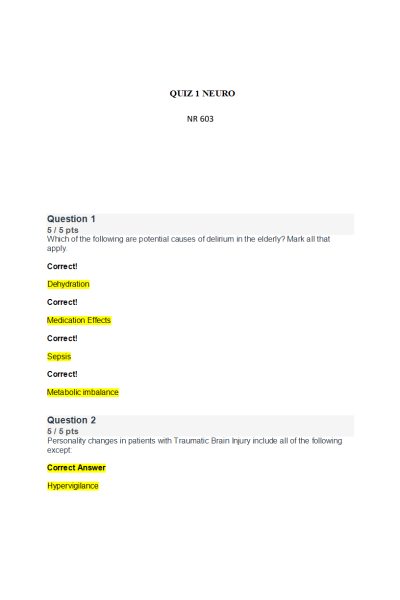- Question: Which of the following are potential causes of delirium in the elderly? Mark all that apply.
- Question: Personality changes in patients with Traumatic Brain Injury include all of the following except:
- Question: Common presenting symptoms of dementia include all of the following except:
- Question: Which type of medication may be particularly dangerous when treating aggression in patients with traumatic brain injury (TBI) because it could cause paradoxical agitation?
- Question: Chris is a 28-year-old marine who just returned from active duty from Iraq. He has been complaining of dizziness, extreme headaches, and memory problems related to traumatic brain injury. His neurological injuries are most likely the effect of:
- Question: A pleasant 73-year-old male presents to the clinic with his wife. His wife states that she has noted increasing problems with his memory including forgetting to get some items on his grocery list and misplacing his car keys. You administer the MMSE in the office and he scores 24/30 which is consistent with Mild Dementia per the scoring guidelines. Your best response to his wife is:
- Question: Collaborating with specialists is an important part of primary care involving patients with neurologic injuries. It is important as an APN to know when to refer to a specialist and what the goal of that referral is: further information, diagnostic testing or treatment recommendations? Which of the following are accurate goals of referral of a patient for Neuropsychological Testing?
- Question: Key early warning signs for Alzheimer’s disease include all of the following except:
- Question: Benzodiazepines are appropriate for which of the following disorders? (Choose all that apply)
- Question: Match the type of Injury with the neurologic damage.
| Instituition / Term | |
| Term | Nursing |
| Institution | Chamberlain |
| Contributor | Hartnett Kara |
























































